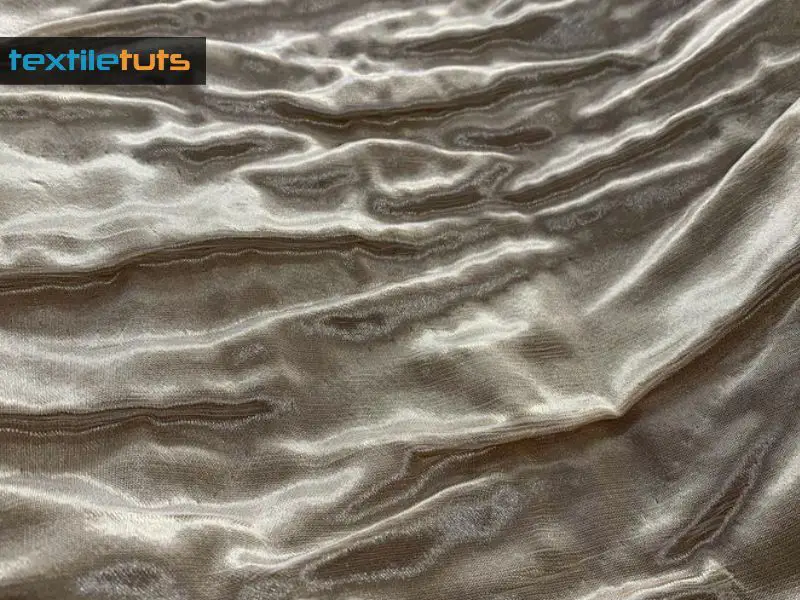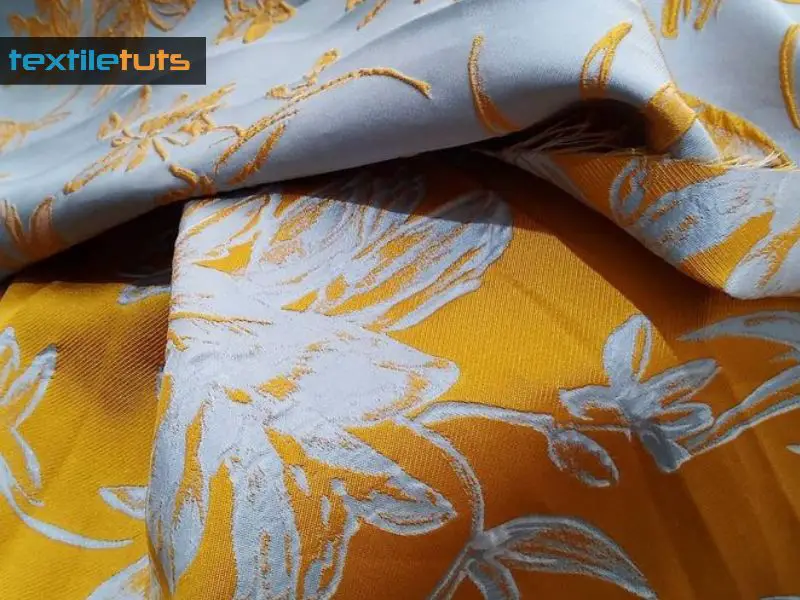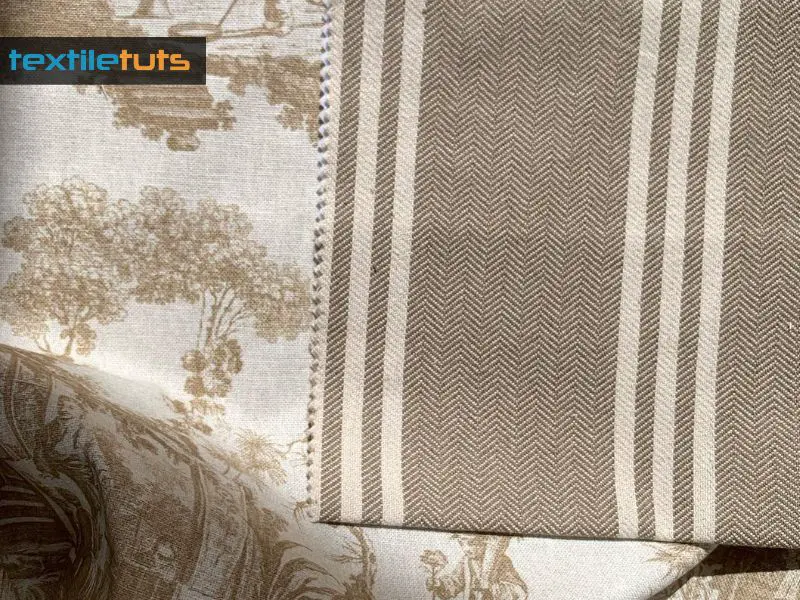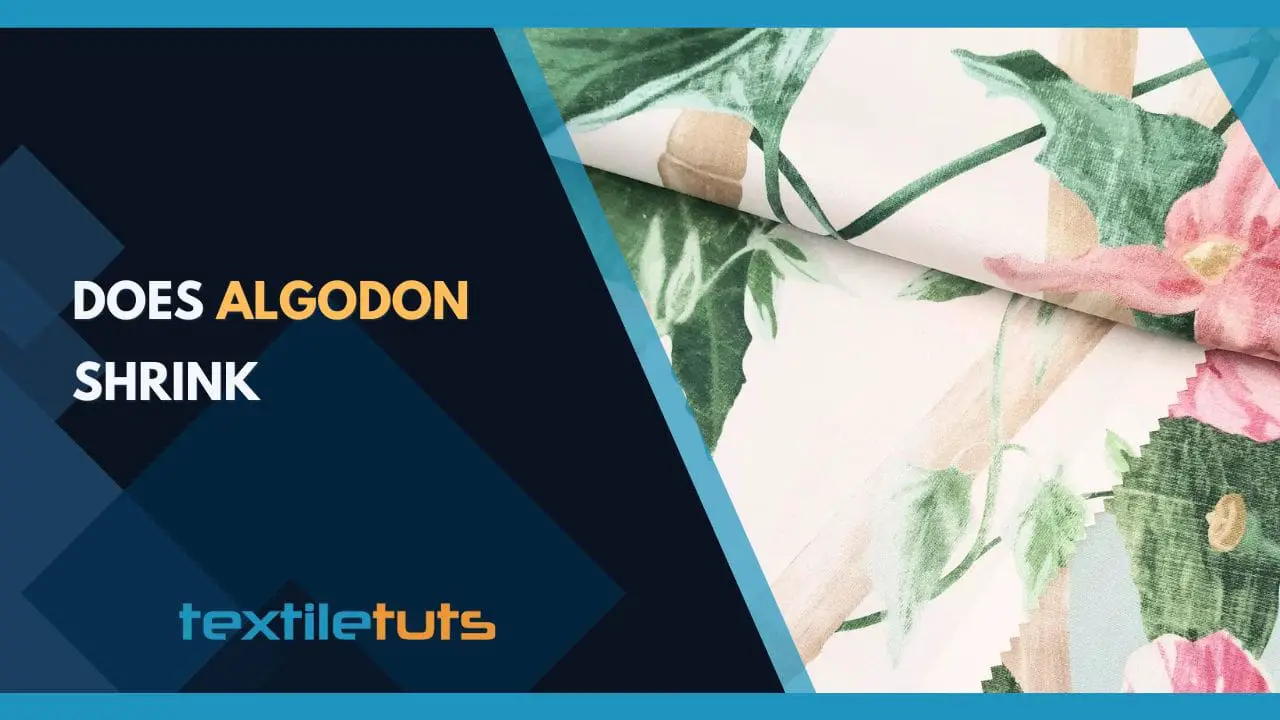Does Algodon Shrink? – Debunking The Myth
Algodon is simply the Spanish term for cotton, and understanding its behavior is key to maintaining the longevity and fit of your clothes. If you’re wondering about the resilience of your cotton garments, particularly about the shrinking of Algodon, you’ve come to the right place.
Algodon does indeed have the tendency to shrink, especially when exposed to high temperatures during washing or drying. This natural fiber is prone to contracting when washed in hot water or dried in high heat.
If you’re a laundry novice or a seasoned pro, then join me as I unravel the mystery behind the shrinkage of Algodon and share essential care tips to keep your cotton looking its best.
Do Fabrics Made of Algodon Cotton Shrink?
Algodon cotton is a natural fiber that’s as much a part of our lives as the morning cup of coffee or the favorite old T-shirt that’s been washed more times than you can count.

Now, let me share a little secret with you: just like that comfy T-shirt, Algodon cotton does have a penchant for shrinking. It’s part of its charm. But why does this happen?
Well, it’s all about the fiber’s nature. When cotton is spun into threads and woven into fabric, the fibers are stretched and elongated. Mix in some heat and moisture from laundering, and the fibers remember their original, cozier state and try to get back to it. This tendency to revert to a relaxed state is a fundamental aspect of how cotton behaves. The properties of cotton fibers contribute to their ability to absorb moisture and regulate temperature, making them a popular choice for comfortable clothing. As a result, even after multiple wash cycles, cotton tends to maintain its softness and breathability, retaining the charm of its natural form.
So, is it inevitable that your beloved cotton attire will shrink down a size or two? Not necessarily!
Many manufacturers pre-wash the cotton fabrics, allowing for most of the shrinkage to occur before the cloth even touches your skin for the first time. This means you can enjoy the plush feel of Algodon cotton without having to play guessing games with sizes after each wash.
Factors that Contribute to Algodon Cotton Shrinking
Algodon cotton is known for its premium quality and superior softness. But there’s a tiny problem of shrinkage. Ever pull your cherished tee from the dryer and feel like it must belong to a teddy bear? Let’s unravel the mystery of shrinking Algodon cotton together!
The Natural Tendency of Cotton Fibers
First off, cotton is a natural fiber, and Algodon is no exception. What does that mean for your clothes? It means they’ve got a certain predisposition. When cotton fibers are spun into thread and woven into fabric, they’re stretched out.
Add heat and moisture, and these fibers relax and want to return to their original state. This can cause your Algodon cotton clothes to appear as if they’ve shrunk, but really, they’re just going back to their natural size.
Heat
Let’s talk about the big one: Heat. It’s like a cotton shrinkage supervillain. Whether it’s from your washing machine or your dryer, heat can cause the bound fibers in cotton to contract. Think about it – even the sun has a hand in this, which means line drying isn’t always the haven it’s thought to be.
Agitation
During the wash cycle, your clothes are having a full-on pool party, but the fun often leads to friction. Machines with an agitator can be especially rough, quite literally shaking your garments into a smaller size.
It’s not just about the spin but about the turmoil your Algodon cotton endures within the watery vortex.
Chemical Reactions
Sometimes, products that we use in laundry care, such as some detergents and fabric softeners, can affect the fabric on a chemical level, altering the way the fibers hold together and potentially leading to a subtle scale down in the size of your clothing.
Water Temperature
We often overlook the simple setting of water temperature. Hot water can be a catalyst for cotton to contract. Additionally, understanding the impact of water temperature on fabric behavior is essential for garment care. This is particularly true when conducting a cotton jackets warmth analysis, as the right temperature can significantly affect the insulation properties of the material. Improper washing techniques could lead to unintended shrinkage, affecting both fit and function.
Algodon cotton, with its soft and luxurious hand feel, is particularly susceptible to hot water’s enthusiastic embrace. Cool or warm water is often recommended to help keep those fibers more stable.
Caring for Algodon Fabric to Prevent Shrinkage
Caring for Algodon fabric to prevent shrinkage involves following specific guidelines during washing and drying. Here are some tips to help you care for Algodon fabric and minimize the risk of shrinkage:

Read the Label
Like a secret map to treasure, care labels guide you on how to treat your algodon garments. Follow them religiously to avoid the perils of shrinkage.
Cold is Gold
When washing algodon, choose cold water. Heat can cause the fibers to tighten up, leading to shrinkage. A cold wash will clean your clothes while preserving their shape and size.
Gentle is the Way
Wash your algodon on a gentle cycle. The less agitation your garments go through, the lower the risk of shrinking. Think of it as a soothing spa for your clothes – they’ll come out refreshed without any undue stress.
Embrace the Air
Drying your algodon naturally by air is the best way to keep the fibers relaxed. If you must use a dryer, opt for the lowest heat setting or the air-dry feature.
Avoid the Iron’s Wrath
If wrinkles are your enemy, iron algodon at a low temperature and never leave the iron in one spot for too long. Use a pressing cloth for an extra layer of protection.
Say No to Dryers
As much as possible, avoid the dryer. It might be convenient, but high heat can be Algodon’s foe. If you’re short on time, tumble dry on the lowest heat setting and remove the garments while they’re still slightly damp.
Properties of Algodon Cotton: Why It is Preferred for Certain Products
Algodon cotton is one of the various types of cotton that are harvested around the world for use in textiles and other products. In the context of the properties and preference for certain products, it can be assumed that this refers to high-quality types of cotton such as Egyptian cotton, Pima cotton, or similar long-fiber cotton varieties.

Below are some of the key properties of Algodon cotton that make it preferred for certain products.
Superior Softness
One of the most immediately noticeable properties of Algodon cotton is its incredible softness. The fine, long fibers of this type of cotton produce a smoother and softer fabric compared to regular cotton.
When woven into textiles, the ends of the fibers don’t protrude, resulting in luxuriously comfortable products that feel gentle against the skin. This softness is especially desirable in products like bed linens, towels, and apparel.
Strength and Durability
Despite its softness, Algodon cotton is also known for its strength. The long fibers used in this type of cotton create a stronger yarn that makes the final fabric more resilient and durable.
This durability means that products made from Algodon cotton can withstand frequent washing and use without significant deterioration. It is an excellent material for items that require longevity, such as clothing and sheets.
Breathability
Algodon cotton is highly breathable due to its natural structure. The fibers wick moisture away from the skin and allow air to circulate, which helps regulate temperature and keep the wearer cool and dry.
This property makes it a preferred material for summer clothing, sportswear, and bedding, ensuring comfort even in warm climates.
Hypoallergenic Nature
For individuals with sensitive skin or allergies, Algodon cotton is an attractive choice because it is naturally hypoallergenic. Its pure and less processed fibers reduce the risk of skin irritation and allergic reactions.
Baby clothing, blankets, and other products aimed at those with sensitive skin often make use of Algodon cotton for this reason.
Absorbency
Algodon cotton has a high absorbency rate, which means it can easily take in liquids. This makes it particularly suitable for toweling, as it can efficiently dry off water from the body. Additionally, its absorbency also makes it ideal for quality bathrobes and kitchen linens.
Low Maintenance
Despite its luxurious qualities, Algodon cotton is relatively low maintenance. It is machine washable and becomes softer with each wash without significant loss of fiber integrity. This makes it practical for daily use items and reduces the barrier to choosing high-quality cotton products for everyday life.
Eco-Friendly
In comparison to synthetic fibers, Algodon cotton is a natural and renewable resource that is biodegradable. Its cultivation can be done sustainably, and many premium cotton producers adhere to environmentally friendly practices, thereby minimizing the environmental impact.
Organic Algodon cotton, in particular, is grown without the use of synthetic pesticides and fertilizers, offering an eco-conscious option to consumers.
Aesthetic Appeal
The fine quality of Algodon cotton allows for a high thread count in fabrics, giving them a smooth, almost silky finish. This enhances the aesthetic appeal of products, adding a touch of luxury and sophistication.
The fabric also holds dyes well, resulting in vibrant, long-lasting colors that attract customers seeking premium goods.
Versatility
Algodon cotton is versatile and can be woven or knit into a wide range of fabrics with different textures and weights. It can be found in everything from delicate, sheer voile to sturdy denim, catering to a broad spectrum of product needs.
Bottom Line
It is possible for algodon to shrink, but it all depends on various factors such as the type of fabric, washing and drying methods, and even the quality of the material.
However, with proper care and following the recommended washing instructions, you can minimize the risk of shrinkage and ensure that your algodon clothing stays in top shape.
So go ahead and enjoy the comfort and durability of this amazing fabric without worrying about shrinkage.

